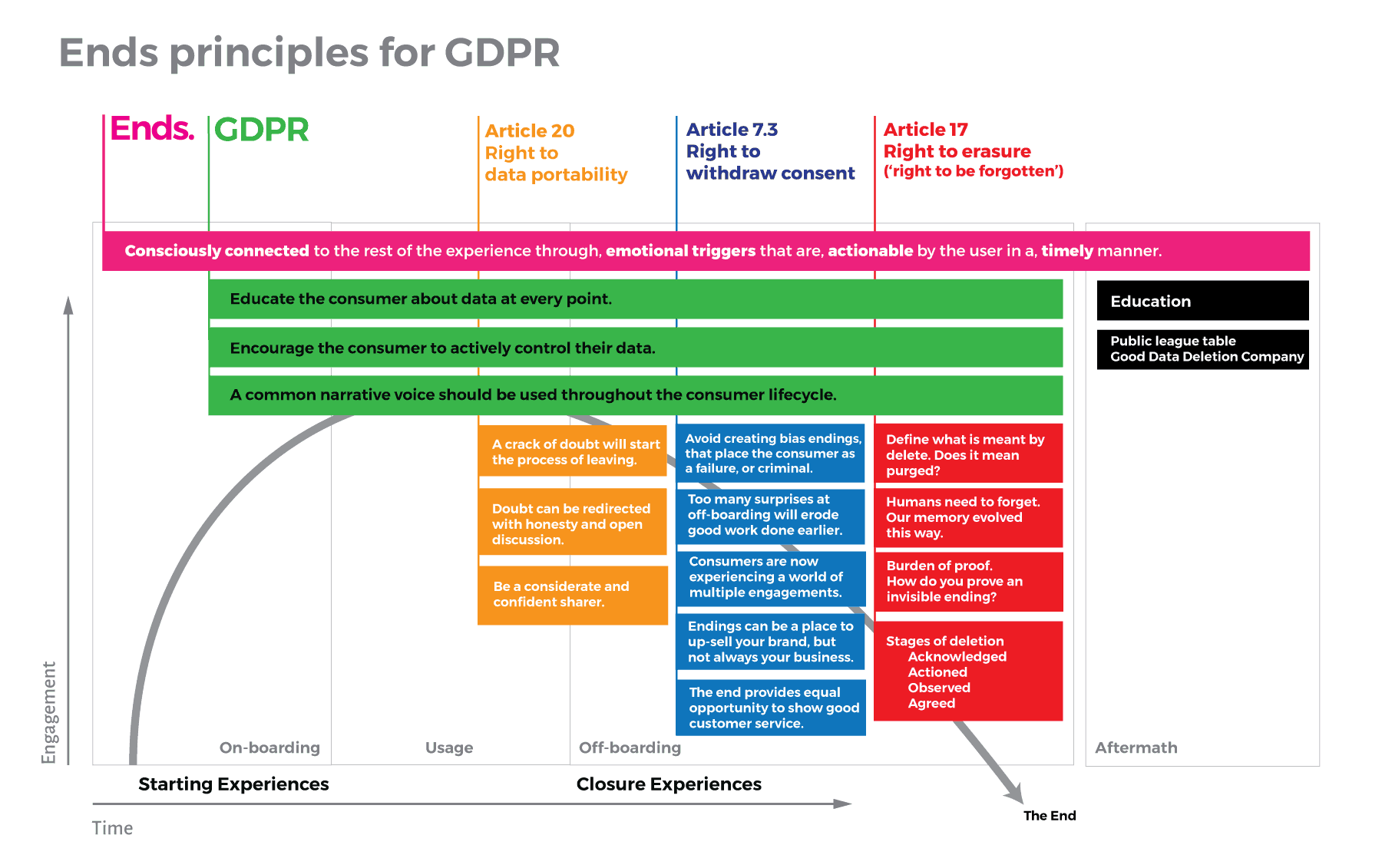Ends principles for GDPR
While studying GDPR and how it is empowering consumers endings with data, I have been able to capture some principles which I think help compose a healthy off-boarding experience for the consumer and ease the burden on business.
Standard ends principles apply to GDPR as well of course.
Consciously connected to the rest of the experience through emotional triggers that are actionable by the user in a timely manner.
Principles that extend across the consumer lifecycle for GDPR.
Educate the consumer about data at every point.
Encourage the consumer to actively control their data.
A common narrative voice should be used throughout the consumer lifecycle.
Around Data Portability
A crack of doubt will start the process of leaving.
Doubt can be redirected with honesty and open discussion.
Be a considerate and confident sharer.
Around Consent, and removal of consent
Avoid creating bias endings, that place the consumer as a failure, or criminal.
Too many surprises at off boarding will erode good work done earlier.
Consumers are now experiencing a world of multiple engagements.
Endings can be a place to up-sell your brand, but not always your business.
The end provides equal opportunity to show good customer service.
Around Right to be Forgotten.
Define what is meant by delete. Does it mean purged?
Humans need to forget. Our memory evolved this way.
Burden of proof. How do you prove an invisible ending?
Consider stages of deletion in Right to be Forgotten.

